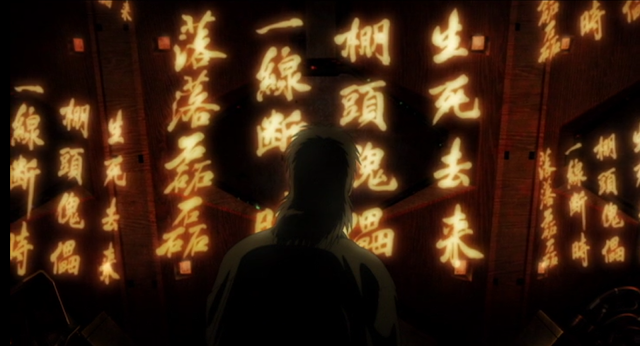Innocence(Ghost in the Shell 2)
The movie "Innocence" is an animated film released in 2004 by director Mamoru Oshii, and is a sequel to the animated film "Ghost in the Shell" released in 1995.
I really like this movie, and I've watched it many times. It's now my bedtime background music. I can't drink much alcohol, so it's my bedtime background music instead of alcohol. (I also listen to lectures by the writer and Showa history researcher, Kazutoshi Hando, such as "Lessons on Showa History" as a substitute for bedtime alcohol).
This movie is not of the "saving humanity from crisis" type. This movie is about Batou and Togusa, who belong to Public Security Section 9, a department of a huge police organization, and the story is about them solving a case.
The story begins with an accident involving the runaway HADALY, a pet android. Normally, this kind of incident would be handled by the local police station, but the Section 9 chief (the old man) is very fixated on this case. On the other hand, Batou doesn't think this case is important. For some reason, Batou doesn't understand why, but he reluctantly carries on with the investigation, and the story progresses.
I really like this movie, but on the other hand, I haven't really recommended it to many people. The reason is that it's very difficult to understand. The characters' conversations are minimal, and there are also conversations that don't make sense.
The conversations are made up of a lot of quotations from old novels, Japanese Noh (an old art form), the Analects of Confucius, the Bible, etc. This is another reason why the story is difficult to understand.
Ghost in the Shell is based on the premise that "what if technology were to be developed that would allow the human brain to be directly connected to computers (the internet)?"
If people could connect directly to the internet, would people's communication become more active and lively? If that were to happen, I think conversing would actually disappear. I think we would only use the minimum amount of words necessary, and the conversations would be too precise, so they would end quickly.
The main character of the movie, Major (Shousa / Kusanagi Motoko) from Ghost in the Shell, does not appear in this movie. However, from beginning to end, you can feel Kusanagi Motoko's presence and intentions in many places.
It is thought that Major (Shousa / Kusanagi Motoko) has some kind of influence on the fact that the head of Public Security Section 9 is so fixated on this case.
 |
The language used in the film is very complex, but there is a fan website that has collected the lines from the film. It's in Japanese, but if you're interested, you can try using a translation software to read it.
http://cdexswzaq.blog118.fc2.com/blog-entry-21.html
生死去来 Seishi no kyorai suru wa
棚頭傀儡 houtou no kairai tari,
一線断時 issen tayuru toki
落落磊磊 rakuraku rakurai
The meaning is"Once death comes, everything returns to nothingness, just like the puppets on the shelf collapsing when the strings are cut."
.(The source is Zeami's Noh playbook "Kakyo".)







Comments
Post a Comment